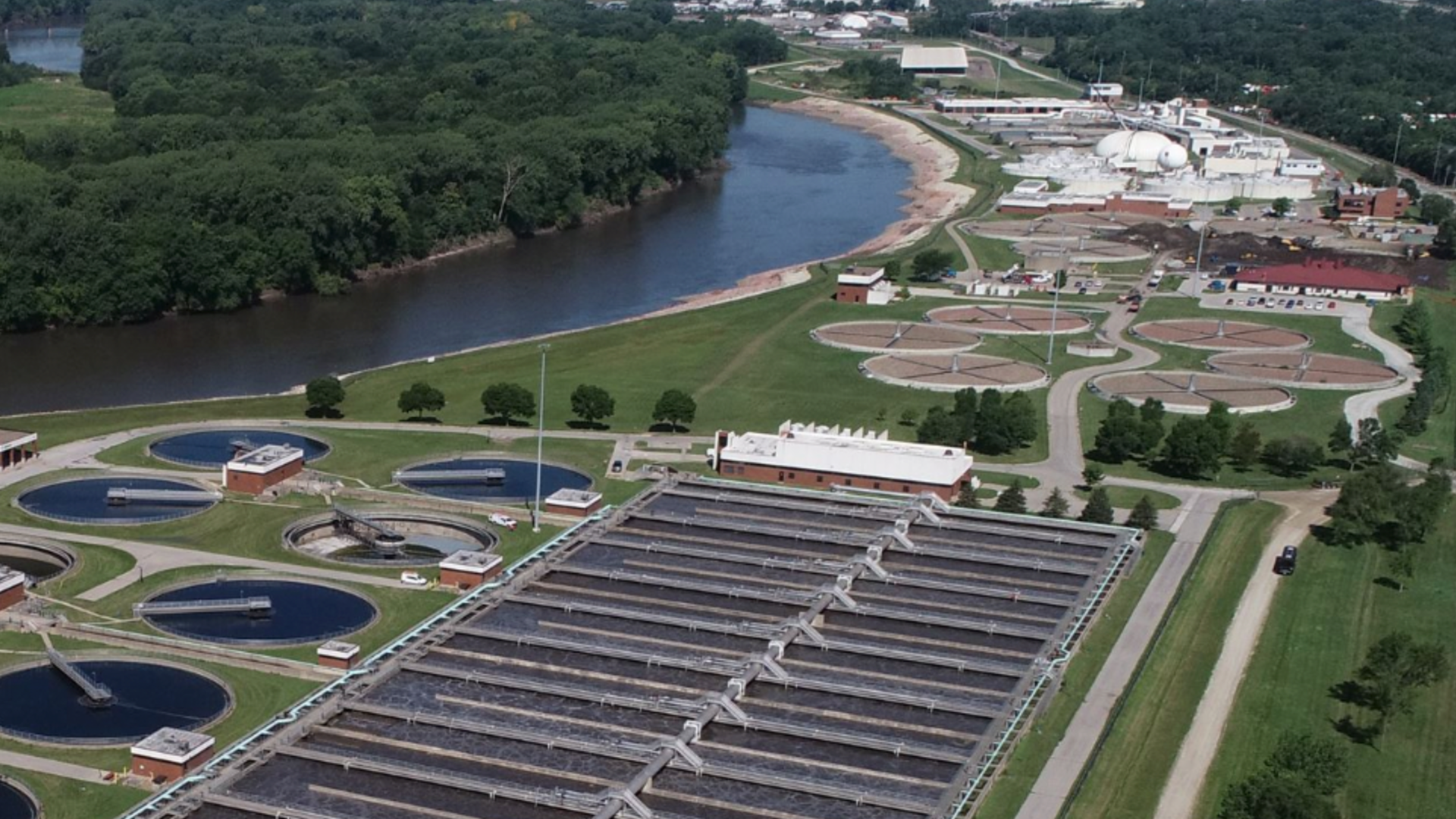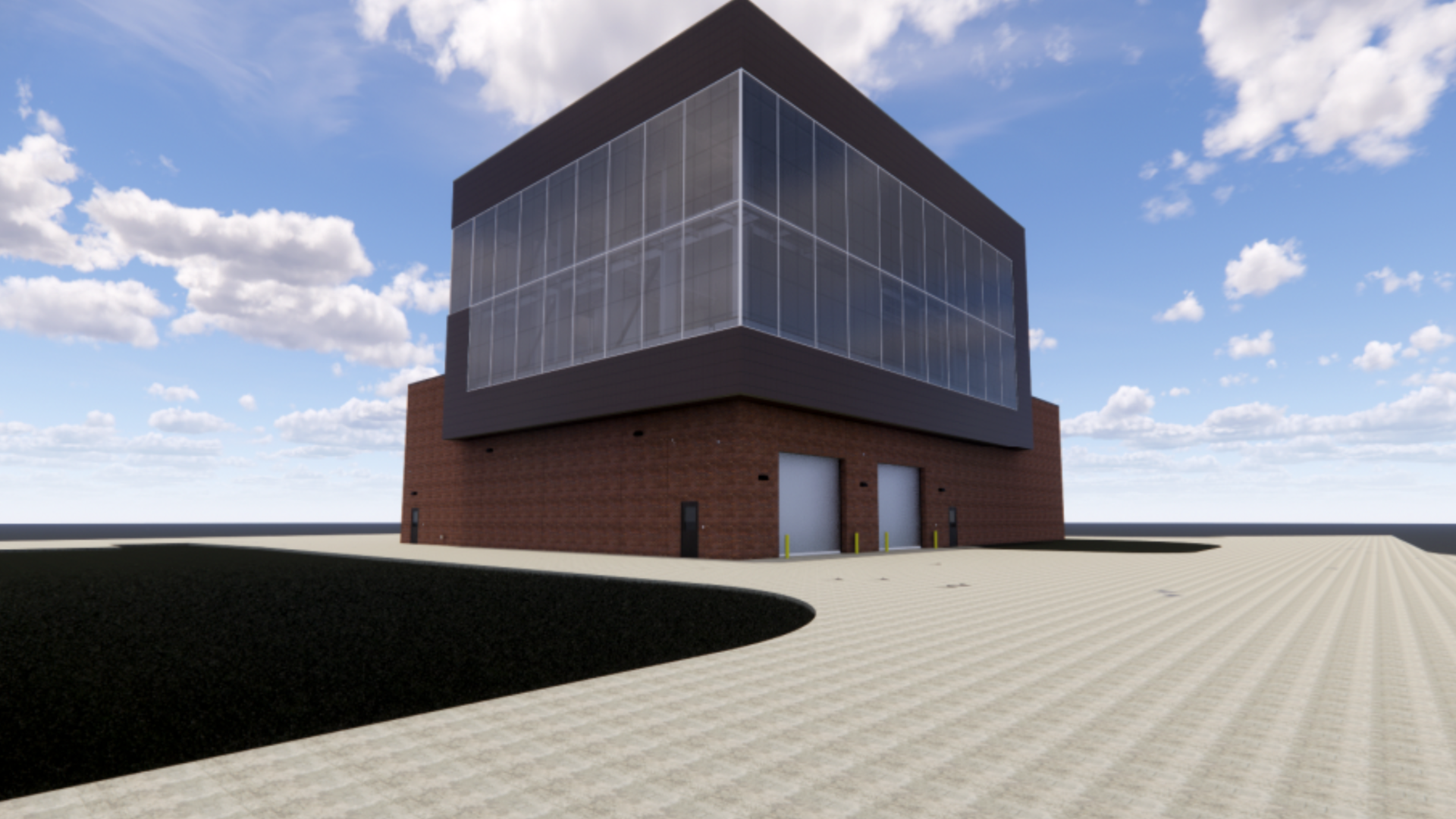Jun 28, 2022 - News
Des Moines unveils plans for a $40 million phosphorus recovery plant
Add Axios as your preferred source to
see more of our stories on Google.

The Metropolitan Wastewater Reclamation Authority’s main facilities along the 3000 block of Vandalia Road in Des Moines. Photo: Courtesy of the WRA

